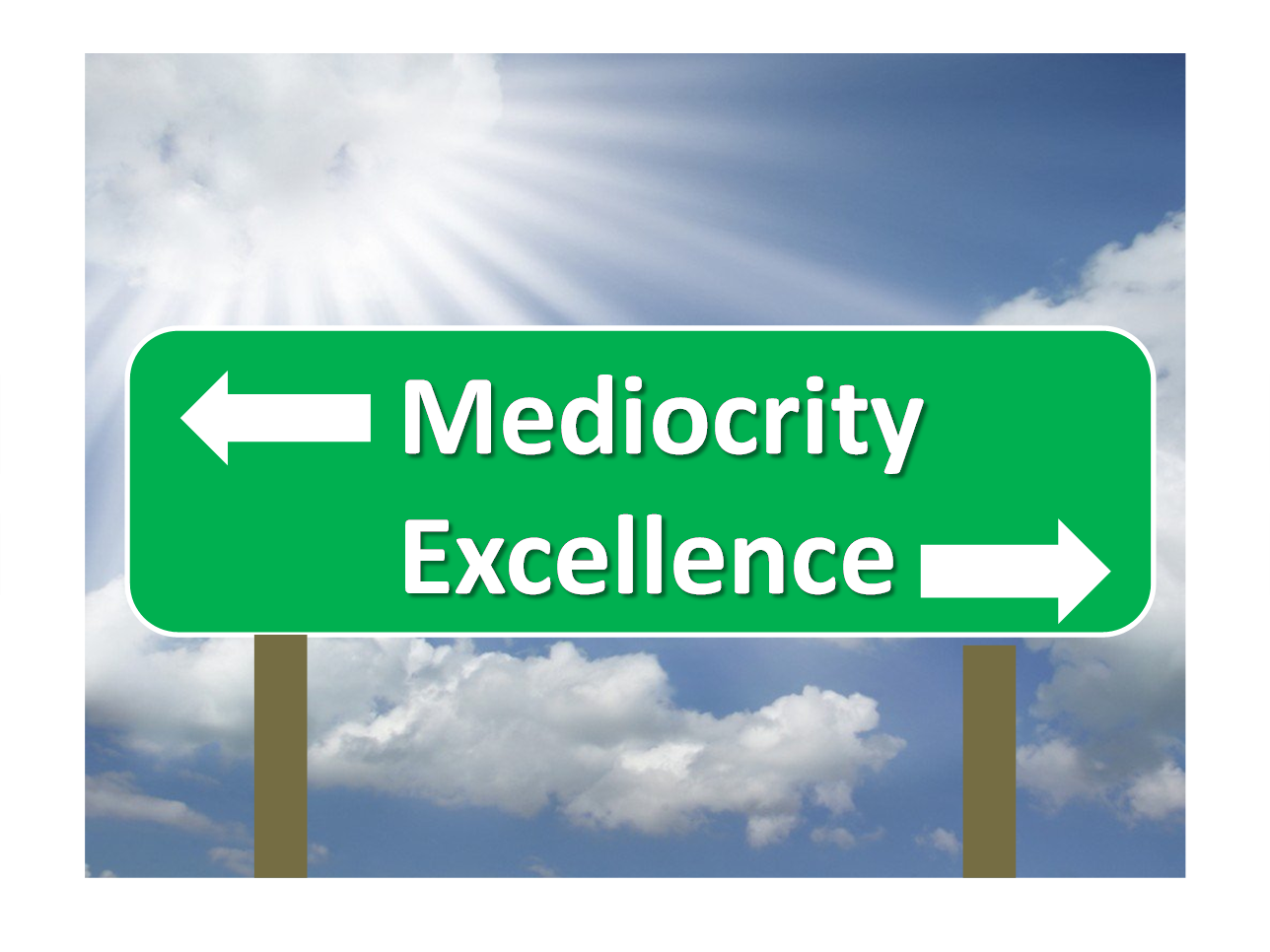“Celebrating mediocrity isn’t encouragement—it’s an apology for setting the bar too low.”
Companies love to shower applause on anyone who completes a task or meets minimum expectations. Every report, every small success, no matter how insignificant, seems to earn recognition.
And they have a word for it “Small milestones.” Celebrate milestones. Not “small” milestones. But here’s the truth: constant praise for routine work creates a culture that confuses adequacy with excellence. Leaders who applaud mediocrity undermine real achievement, leaving top performers overlooked and uninspired. Handing out trophies for simply “doing the job” doesn’t motivate people to go above and beyond; it conditions them to settle for less.
When Mediocrity is the Standard
Consider a small manufacturing company that prided itself on a “culture of appreciation.” The CEO believed that praising all efforts, big or small, would boost morale and retain employees. So, at the end of every month, employees were publicly recognized for completing basic tasks: sales targets barely met, reports submitted on time, or attending every team meeting. Awards and certificates flowed like water.
However, over time, something odd happened—high-performing employees began to disengage. They saw their peers getting the same accolades for meeting minimal expectations, while their own efforts to exceed goals went largely unnoticed. Eventually, these top performers began leaving for companies that appreciated real results. The company was left with a demoralized team where mediocrity had become the standard. In celebrating every small win, they had unwittingly set a culture where simply showing up was enough, and striving for excellence became irrelevant.
How to Reward Excellence, Not Just Presence
Leaders who want a culture of real performance need to rethink how they recognize achievements.
Instead of giving praise for every small task, recognition should be reserved for efforts that drive the company forward and inspire others to aim higher. Reward the behaviours that drive good performance, and not the results per see. Always link the results to the behaviours, and think about Mr Strategy’s REACH model for rewarding excellence.
The REACH Model to Reward Excellence
1. Raise the Bar. Establish clear, high standards that distinguish excellence from mere participation. Define what constitutes a remarkable achievement and make sure everyone knows that “doing the job” isn’t enough to earn applause.
2. Evaluate Impact. Recognize employees based on the impact they have on the organization. Did their work improve a process, increase revenue, or solve a tough problem? Rewarding impact, not just effort, sends a strong message about what the company truly values.
3. Acknowledge Innovation. Praise creativity and boldness. When employees take calculated risks or bring new ideas to the table, they’re adding more than routine effort—they’re elevating the company’s potential. Recognize that, and watch your team strive for more.
4. Celebrate Growth, Not Comfort. Focus on celebrating those who push themselves and grow, rather than those who stay in their comfort zones. Reward learning and resilience in the face of challenges, rather than rewarding just consistency.
5. Honor Team Excellence. Recognize team achievements over individual efforts when it contributes to larger goals. High-performing teams will outshine high-performing individuals when they work toward shared success.
Using REACH, leaders make sure that praise and recognition are meaningful, driving employees to contribute at a higher level rather than coasting on basic competence.
Questions for Leaders
a) Are you recognizing employees for achieving meaningful outcomes, or simply for completing routine tasks?
b) How often do top performers receive the same level of praise as those meeting minimum standards?
c) What kind of culture are you creating by rewarding mediocrity—one of excellence, or one of adequacy?
Leaders, it’s time to raise the bar. If you want a winning team, stop handing out trophies for showing up. Use REACH to celebrate real accomplishments that add value to your organization. Inspire your team to aim higher by showing them that only meaningful impact earns applause.
Win by creating a culture where excellence is the standard, not an occasional exception.







